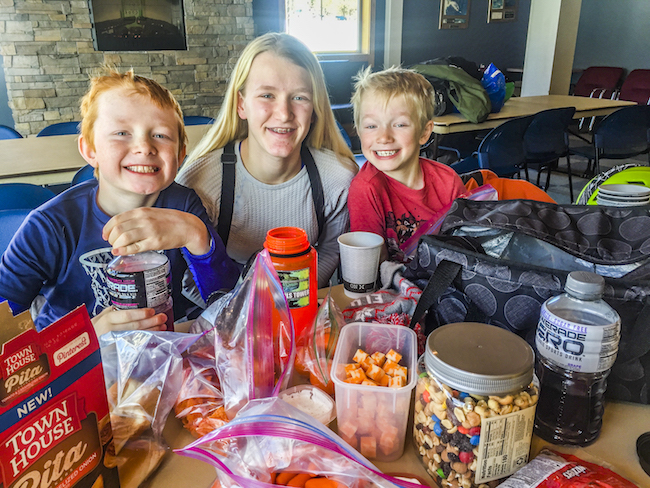I want to begin this column by expressing my gratitude for the richness and fullness of my life.
I have so many blessings — four healthy children, a comfortable home, a secure job, a loving husband, and a strong network of great friends. Compared to so many others in this world, I live an abundant and privileged life.
But, as good as I have it, I’ll be the first to admit, my life isn’t exactly easy either. It’s no small task to parent and keep up with the responsibilities of home and work, while also maintaining strong relationships and staying healthy and balanced as an individual.
I’m sure you can relate.
Some days are certainly better than others, but I know I’m definitely a work in progress when it comes to my capacity for resilience when navigating day-to-day life.
As adults, we’re exposed to stressors all the time. We need to work through challenges relating to our children, work, home, time, money, health, you name it. We have a lot of responsibilities.
So how can we boost our resilience as parents?
Resilience — defined as the capacity to recover quickly from difficulty — is a skill that can be developed and strengthened.
Take note of these important reminders that can help you boost your resilience and manage stress:
Tap into your support systems.
Talk to other parents and friends to get ideas and insight on challenges you’re facing. Even if you don’t get all of the answers to your problems, just talking can help normalize common issues and make you feel less isolated in your struggles.
Ask for help when you need it and accept help when it’s offered. This sounds like it should be easy, but it can be incredibly hard. It can take courage to ask for help. It isn’t uncommon to feel vulnerable, ashamed and guilty, or to think: “If I need help with this I must not be a good enough,” or “I’ll be a burden to someone else if I ask for help.”
But it’s important to know and understand you aren’t weak or a bad parent when you ask for help. Admitting to ourselves that we can’t do everything all the time — and tapping into support systems — is extremely important for stress management and a mark of true strength and wisdom.
You can find avenues for support with your family and friends, parent support groups, childcare providers, your pediatrician, teachers and/or counselors/therapists.
Take care of yourself.
Eat well, sleep well and exercise. This sometimes can feel like another “thing” we need to add to our daily list of to-do’s, but the reality is that when we neglect to take care of ourselves, it can have negative effects on both our mental and physical health. Not only are these practices important for our own well-being, but they’re also important habits to model for our children. Win-win!
Stay grounded.
Work to stay spiritually anchored by devoting even just a few minutes of quiet time each day for prayer, meditation or gratitude practices.
Control what you can.
Think about ways you can make some small changes that may alleviate some stresses. For example, try to keep your home environment organized and uncluttered. Do your best to keep routines such as mealtimes and bedtimes. Be mindful of commitments — and say “no” when you need to.
Have fun as a family.
This winter our family bought season passes at the nearby ski hill. Whenever we can, we load up the car and a picnic lunch and spend one full weekend day on the slopes away from the house (where we can’t be pulled away from each other by household chores or temptations to veg out in front of screens).
It’s a refreshing break from daily responsibilities. It’s how we schedule time for fun. I’ve also had many cozy escapes from the responsibilities of day-to-day life with my children, by reading books, watching movies and playing board games together.
Making experiences like these habits has provided opportunities to strengthen our relationship as a family through conversation and play.
Reframe.
Studies show people handle stress better when they reconsider the situation from a new angle. When I reframe my situation from one full of stress to one that’s rich with abundance, my perspective of the experience shifts from negative to positive. It might not be easy, but it’s certainly possible to parent from a grateful heart even when it feels difficult.
Megan Devine is an elementary school teacher who lives with her husband and four school-age children in Northeastern Minnesota. She blogs at kidsandeggs.com.



















